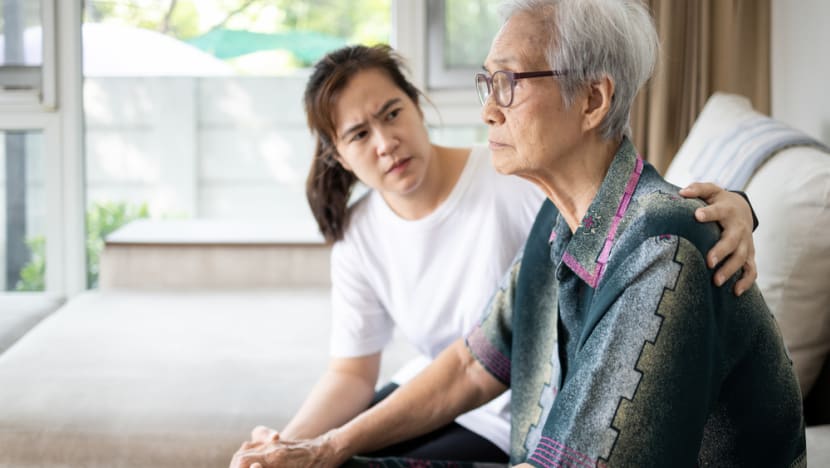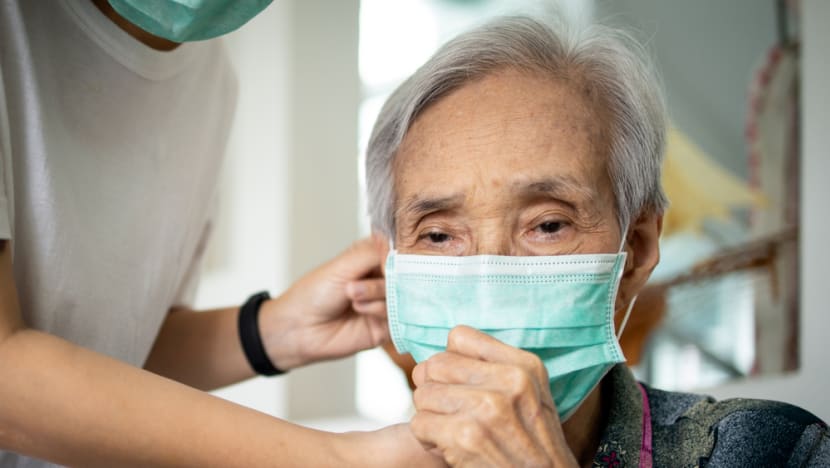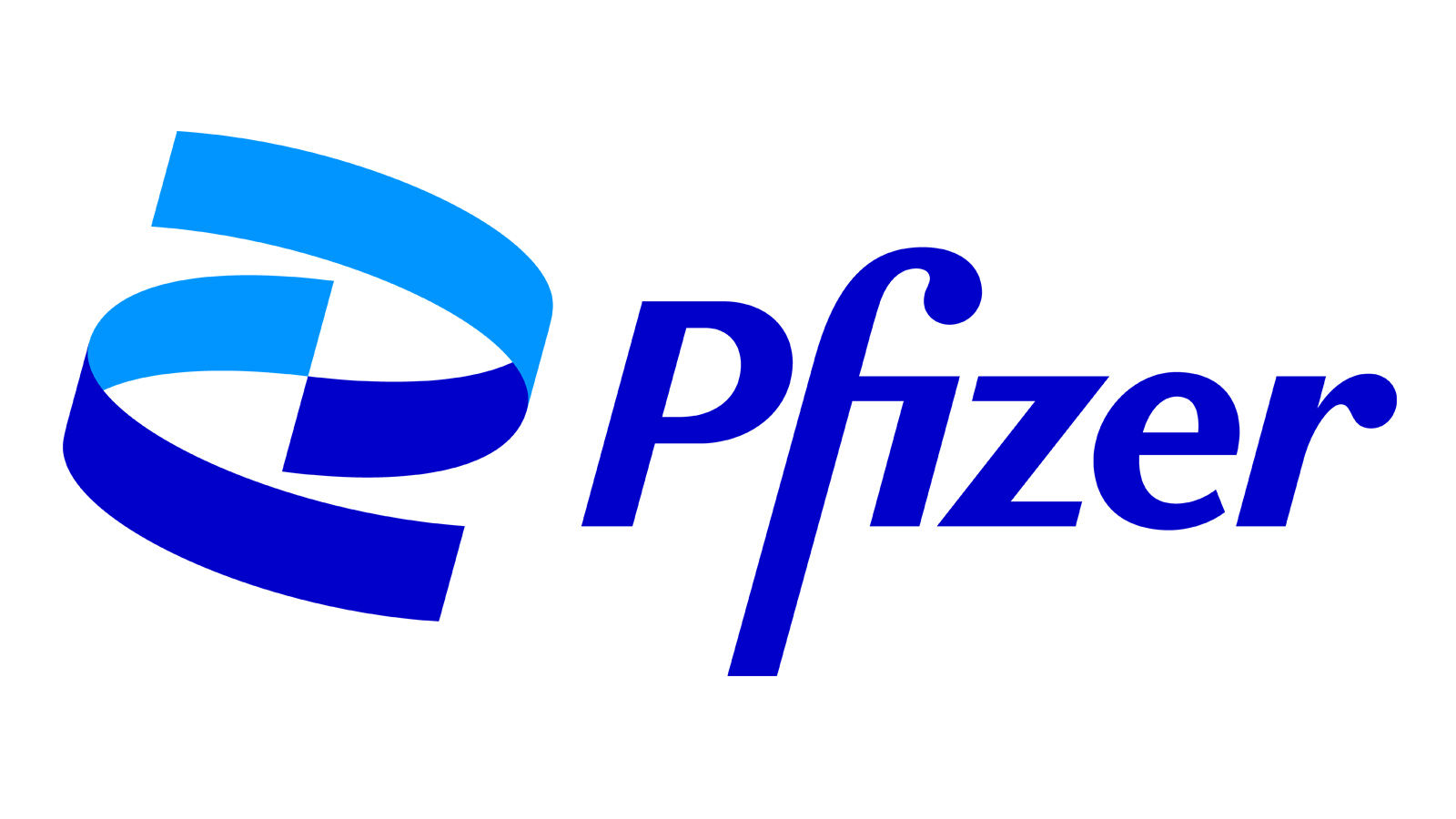Why taking a proactive stance is key to COVID-19 preparedness
Enhanced awareness of who is at higher risk and the treatment options available can contribute to improved outcomes.

While COVID-19 typically presents as a mild illness in most people, the risk increases for individuals with underlying health conditions and the elderly. Photos: Shutterstock, Pfizer

This audio is generated by an AI tool.
The year-end holiday period in 2023 saw a notable surge in COVID-19 cases – a situation that is likely to recur as new variants emerge and spread, facilitated by global travel.
Dr Bulent Taysi, senior medical director and regional medical lead (EM-Asia) at Pfizer, highlighted a general reduction in the awareness regarding the need for medical attention upon contracting COVID-19. This knowledge gap is particularly critical for individuals susceptible to complications, some of whom may be unaware of their elevated risk status.

An ongoing study on COVID-19 prescription therapeutics conducted independently by IPSOS1 with over 60,000 people across 29 countries in July 2023 revealed that only 24 per cent of respondents with one or more risk factors were adequately aware of their higher-risk status. Higher-risk individuals were identified as those aged 60 or older, current or former smokers, or aged 18 and above with at least one comorbidity such as lung or heart disease, diabetes or conditions that affect the immune system.
Dr Taysi shared that while COVID-19 commonly manifests as a mild disease in the young and healthy, the threat it poses escalates for those with underlying health conditions.
He recommends that individuals falling into this category consult a doctor immediately upon testing positive for COVID-19: “Delaying medical attention could set in motion a perilous path where symptoms may quickly evolve into a severe, life-threatening form of the disease.”
WHEN COMPLACENCY DELAYS EFFECTIVE TREATMENT

Although COVID-19 is now regarded as endemic in Singapore, COVID-19 preparedness is still essential, especially among the vulnerable and unvaccinated, noted Dr Taysi.
“This entails the development of a comprehensive, proactive strategy that includes both vaccinations and oral antiviral treatments to significantly minimise hospitalisations and deaths,” he said. “For higher-risk patients, COVID-19 oral antiviral treatments are crucial to staving off the progression of the disease.”
However, the IPSOS study showed that only 28 per cent of respondents in Singapore were “very aware2 of COVID-19 prescription therapeutics”. Dr Taysi shared that broader awareness about the availability of oral antiviral treatments would be important for eligible patients in Singapore.
This limited awareness extends beyond Singapore: Reports from the United States indicate a similar misconception among both patients and healthcare providers about the efficacy of oral antivirals in treating COVID-19.
Dr Taysi explained that oral antiviral treatments are most effective when administered in the early days of symptom onset. Prompt action in this regard has been proven to considerably reduce the risk of hospitalisation or death related to COVID-19, he elaborated.
Additionally, Dr Taysi advocates for a proactive approach among individuals at higher risk and their loved ones. He urges them to consult their primary care doctors about available COVID-19 treatment options, even if they have not contracted the virus.
“Such preparedness is vital in setting out next steps in the event of an infection, ensuring prompt and appropriate treatment that synergises with ongoing medical regimens,” said Dr Taysi.
PLANNING WITH TRUSTED PROFESSIONALS

According to the IPSOS study, family doctors or primary care physicians are the second-most trusted source of COVID-19 prescription treatments among respondents in Singapore, closely trailing behind national health authority guidelines and recommendations.
These findings align with a 2022 survey by Pfizer Singapore, underscoring the public’s trust in healthcare professionals for medical advice and information.
“Primary care doctors are essential in reassuring patients and addressing their concerns,” Dr Taysi noted, adding that healthcare professionals possess the necessary expertise to guide patients on the suitability and safety of oral antiviral treatments.
Locally, oral antiviral treatments can be prescribed by general practitioners to patients who have been assessed to be clinically eligible. These include COVID-19 patients who are 18 and above, with active cancer, serious heart or immunosuppressive conditions, or are receiving immunosuppressive treatment.
Dr Taysi encourages Singaporeans to actively manage their health, aligning with national efforts like Healthier SG and to extend this pre-emptive mindset to readiness for COVID-19.
“Staying current with vaccinations and being informed about treatment options are paramount,” he said.
Find out if you’re at higher risk for COVID-19 complications and what you need to do to plan ahead.
1The IPSOS COVID-19 diagnostics and therapeutics consumer study is an ongoing syndicated survey conducted among consumers on the IPSOS Global Advisor online platform. Results cited in this article were based on research conducted between Jul 3 and Jul 13 last year among 2,003 consumers aged 18 to 74 in Singapore. The full study was conducted among more than 60,000 adults in 29 countries. The recruitment process aims to ensure a nationally representative base for the samples collected. All data were collected online. Data IPSOS 2024, all rights reserved.
2The rating scale used in the study ranges from 1 to 7, where a score of 1 indicates “not at all aware” and a score of 7 indicates “very aware”.
This article is sponsored by Pfizer Singapore. The opinions expressed in this article are solely those of the expert(s), speaker(s) or participant(s) featured herein. This material is intended for educational and/or disease awareness purposes only and should not be used as a substitute for consulting a healthcare professional. For more information, speak to a healthcare professional. References available upon request.
PP-C1D-SGP-0056/13FEB2024















